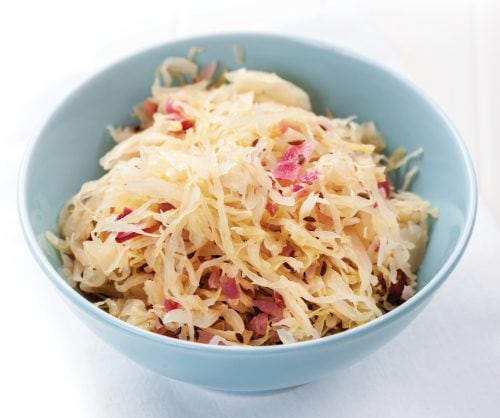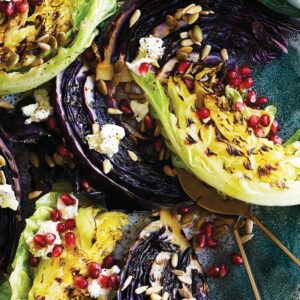
Dietitian Katrina Pace explains whether fermented foods, such as kombucha, sauerkraut, and kefir are safe to eat in pregnancy.
Q. I consume a lot of fermented foods such as sauerkraut, kombucha and kefir. I am planning to get pregnant soon and my sister says it’s not safe to eat fermented foods when you’re expecting. Is this true?
A. Having a healthy gut microbiome is important during pregnancy. Eating fermented foods before you get pregnant sets the groundwork for making sure baby gets the best bacteria right from the start. Eating fermented foods, such as fermented soy bean, yoghurt, pickles and miso, during pregnancy is common in many Asian countries, such as Japan. But there’s not a lot of reliable information about the safety of eating fermented foods, such as sauerkraut, kimchi, kefir and kombucha, during pregnancy.
Using probiotic capsules and powders during pregnancy is considered safe, and there’s human and animal research showing that using Lactobacillus probiotics during pregnancy can have a role in reducing the risk of pre-eclampsia and premature birth, stabilising blood sugar levels and reducing excess abdominal weight gain. Some fermented foods are high in Lactobacillus, so you could say that these foods may have the same effect as the probiotic supplements.
However, there are reasons to be cautious about fermented foods. Avoid all homemade fermented foods during pregnancy, as the risk of unintentionally growing harmful bacteria alongside the good bacteria is substantially higher.
Although there are no studies looking at kombucha intake during pregnancy, current advice is that, because of the small amounts of alcohol present in kombucha, it should be avoided during pregnancy and breastfeeding.
If you haven’t eaten fermented foods regularly before you get pregnant, then consider taking a probiotic rather than fermented foods. Leave them for after pregnancy and when you’ve finished breastfeeding. But, if you’re used to eating fermented foods then, during pregnancy, avoid kombucha, and consider bought sauerkraut, kimchi and kefir instead of homemade.
Have a question? Send yours to [email protected]
You may also be interested in:
Eating for two, nutrition in pregnancy
Ask the experts: Folate and pregnancy
Article sources and references
- Arango G et al. 2015. Probiotics and pregnancy. Current Diabetes Reports 15:567-75https://www.ncbi.nlm.nih.gov/pubmed/25398206
- Ministry for Primary Industries What to eat when pregnant, mpi.govt.nz/food-safety/food-safety-for-consumers/food-and-pregnancy/list-of-safe-food-in-pregnancy/ Accessed December 2017https://www.mpi.govt.nz/food-safety/food-safety-for-consumers/food-and-pregnancy/list-of-safe-food-in-pregnancy/
- Moskvitch K. 2014. Bacteria found in healthy placentas. Nature News 21 May 2014https://www.nature.com/news/bacteria-found-in-healthy-placentas-1.15274
- Ozawa N et al. 2014. Maternal intake of Natto, a Japan’s traditional fermented soybean food, during pregnancy and risk of eczema in Japanese babies. Allergology International 63:261-6https://www.ncbi.nlm.nih.gov/pubmed/24759553
- Reid JN et al. 2013. The rationale for probiotics improving reproductive health and pregnancy outcome. American Journal of Reproductive Immunology 69:558–66https://www.ncbi.nlm.nih.gov/pubmed/23414386
- Talebi M et al. 2017. Examination of the varied and changing ethanol content of commercial kombucha products. Food Analytical Methods 10:4062https://www.researchgate.net/profile/Daniel_Armstrong/publication/318238488_Examination_of_the_Varied_and_Changing_Ethanol_Content_of_Commercial_Kombucha_Products/links/5a206f784585158865c4f3b2/Examination-of-the-Varied-and-Changing-Ethanol-Content-of-Commercial-Kombucha-Products.pdf
www.healthyfood.com










